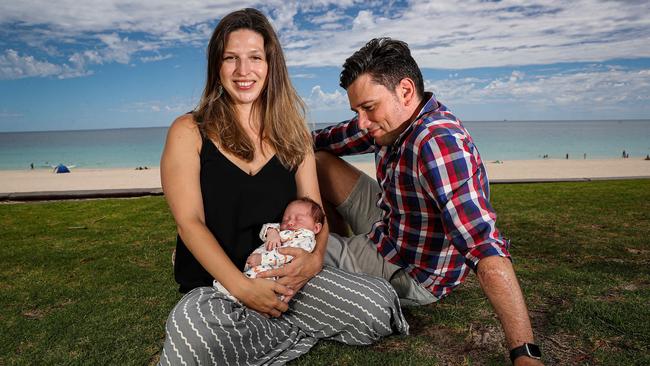Coronavirus: Wards deserted from here to maternity
Stress and anxiety about the potential impacts of the virus also contributed to a dip in birthrates.

In his more than 15 years in private practice, obstetrician Michael Gannon has never faced a month like this.
February will be the quietest yet for births for the former president of the Australian Medical Association — as well as for many of his colleagues around the country — as empty maternity wards feel the full brunt of COVID-19’s impact on birthrates.
The disruption in the early stages of the pandemic to IVF services, which typically account for up to 15 per cent of births in Australia, are being felt inside maternity hospitals nine months later.
On top of that, natural pregnancy rates also dipped during the early months of the pandemic, when stress and anxiety about the potential of the virus and its possible impact on jobs and health were at their peak.
“With any disruption to society, especially one which causes this degree of fear and apprehension, we thought we would see a reduction in the birthrate and we have,” Dr Gannon said.
The impact, he said, was being felt within private hospitals in particular. Public hospitals had some of the pandemic drop-off countered by an increase in the number of uninsured expat Australians who had returned home to have their children here.
“We’ve seen enormous demand on public maternity services but we are expecting a significant drop in activity in private hospitals in the next three months,” he said.
Perth woman Clarissa Carradine said she was surprised by how quiet the private hospital was when she arrived there recently for the birth of her second child, daughter Florence.
“It was all very empty,” she said. “We were being wheeled through the operating wing and there was no one else there.”
The biggest impact of the pandemic on her birth was the scuttling of her parents’ plans to travel from England to Australia to be with her after Florence’s arrival.
“Sadly because of COVID they’ve not been able to fly out to Australia and support our family,” Ms Carradine said.
But any obstetricians, midwives and maternity nurses lamenting the quiet conditions may not have to wait long for things to change. Two of Australia’s biggest IVF providers, Genea and Monash IVF, both said they had seen a significant spike in demand after the suspension of services was lifted last year.
Genea medical director Mark Bowman said IVF demand was up 15 per cent year-on-year in the two months after services resumed, while Monash witnessed a jump in demand of 25 per cent from 2019 levels between August and December last year.
Monash IVF group medical director Luk Rombauts, who is also the president of the Fertility Society of Australia, said there had been a strong return in demand for IVF services once the pandemic-imposed restrictions were lifted. He said the delays early in the pandemic had been particularly stressful for older women closer to the edge of their reproductive lifespan.
“No delay is ever pleasant for any woman, and we worked very, very hard as an industry to make sure we could continue our service provision, and I think we’ve largely succeeded in that,” Professor Rombauts said.
Associate Professor Bowman said the rebound in IVF activity reflected not only pent-up demand but also a possible shift in people’s priorities as a result of the pandemic. “People are pretty determined about what they want to do,” Professor Bowman said.
In the meantime, those women giving birth over the coming weeks at least can expect to find maternity wards without their normal hustle and bustle.




To join the conversation, please log in. Don't have an account? Register
Join the conversation, you are commenting as Logout